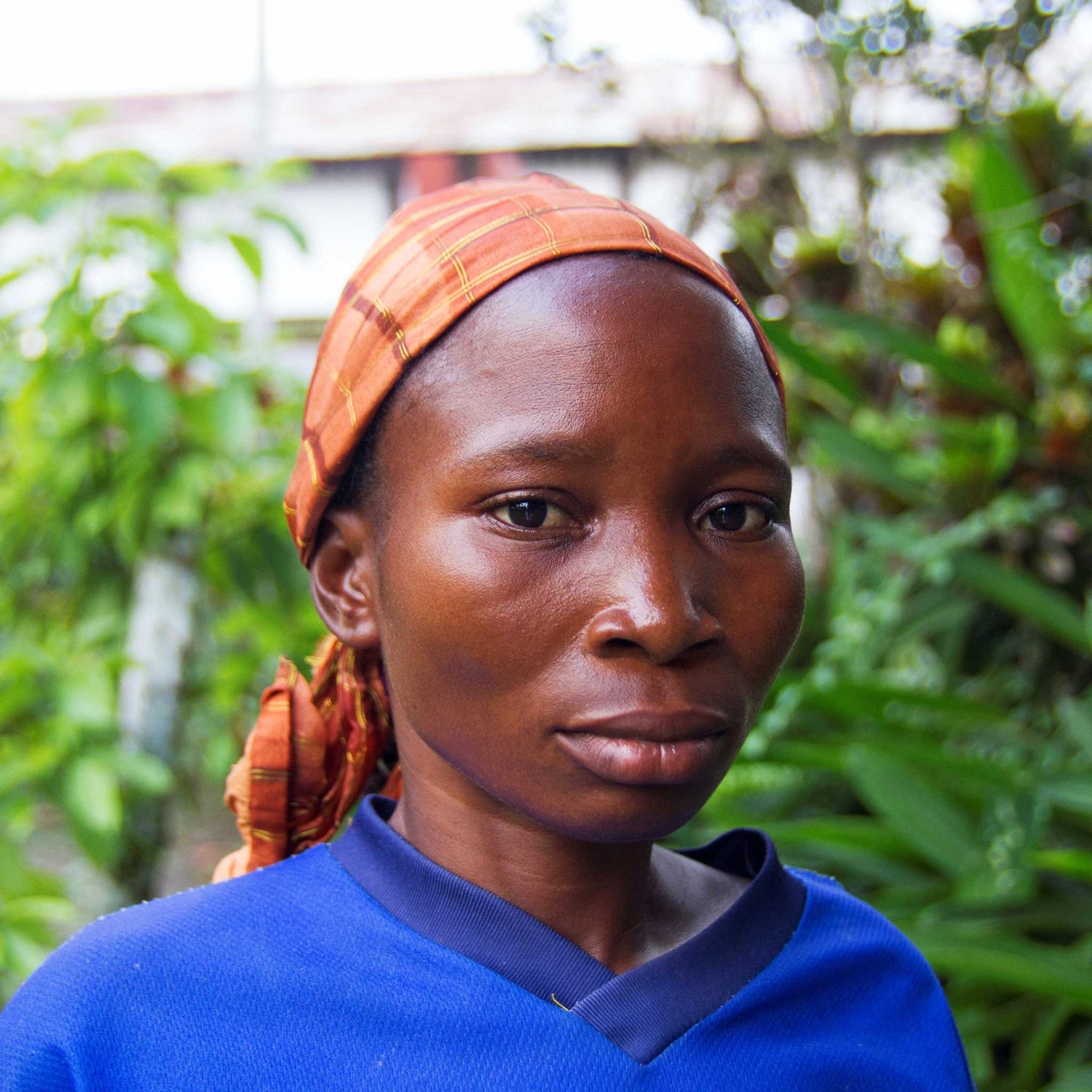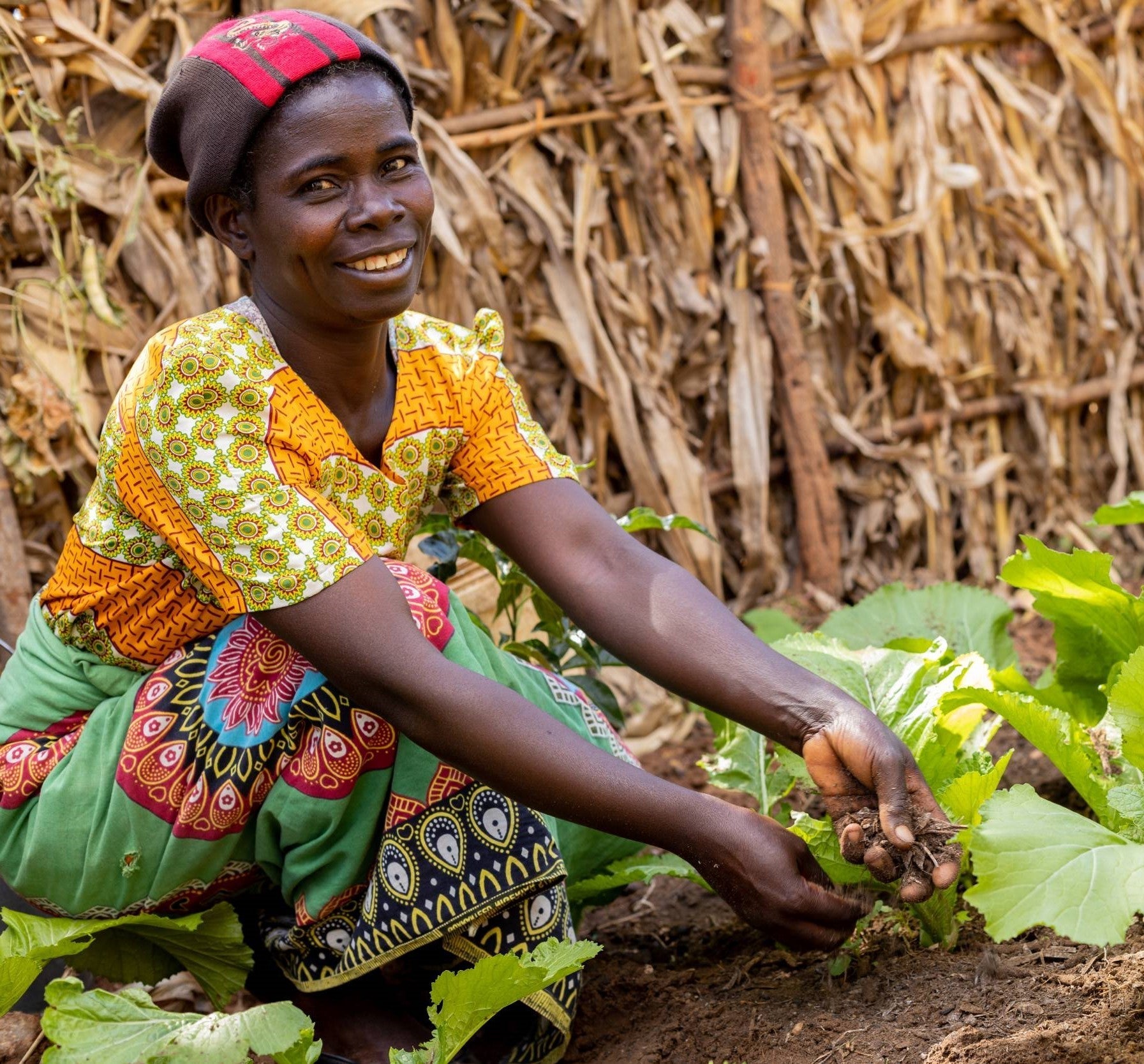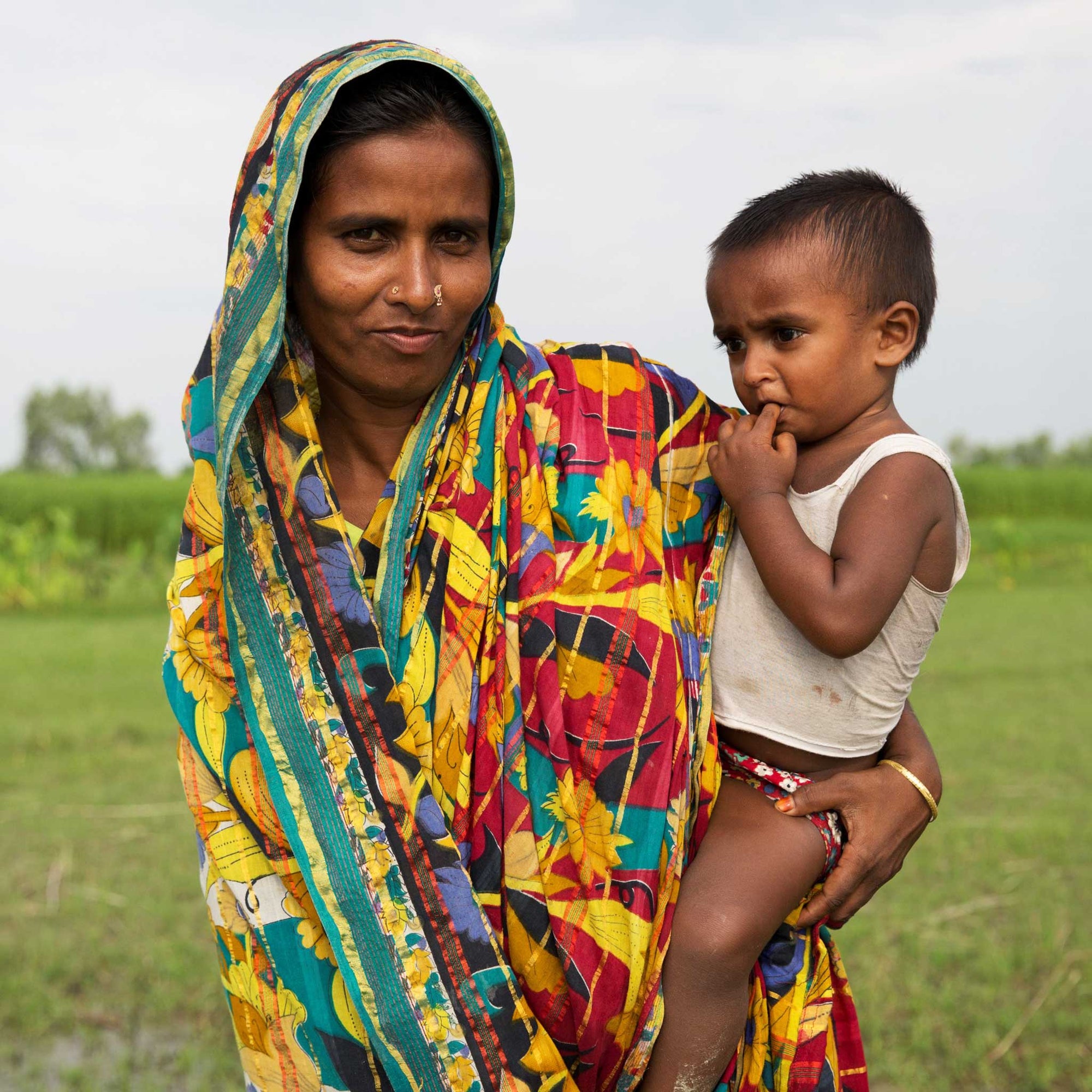Home may be where the heart is but, for many, the idea of a ‘safe’ home is hard to picture in a place where conflict, disasters, gender-based violence and poverty are all around.
Shabunda isn’t really home for Angelique, but some would say it’s safer than some neighbouring areas. It’s in the middle of an isolated, forested zone in the hilly region of South Kivu, in the DRC (Democratic Republic of Congo).
It’s here that Angelique and her two children are rebuilding their lives.
Surviving the unthinkable
In 2015, violence broke out in Angelique’s home village of Pale, where she lived happily with her husband. Angelique and her children were kidnapped by armed forces. What followed was horrific – but she managed to escape.
Female farmers carried her out of the jungle on the backs, for miles, to the hospital. Chinese gold miners took her by boat to get further treatment.
She recalls: “I found my children here in Shabunda, they were weeping when they saw me. My husband rejected me... He went back to his own family”.
Rebuilding lives
After seeking refuge with a host family of distant relatives, she and her children received a small sum of cash and training from our partner SARCAF:
“SARCAF helped me psychologically and tried to reassure me about my situation. A tailoring shop also taught me how to sew clothes to make a living. I pray to God as I have had no beginning to my life.”
A more stable sense of safety means Angelique can look to the future. She’s used the money to make donuts, and to sell vegetables and cooking oil. Thanks to the training, she hopes to start her own dressmaking business one day.
About SARCAF
SARCAF offer psychological, economic and practical support to displaced people. They provide, among many other things, beds for displaced people to sleep in while they're staying in host homes. They also refer women for medical treatment, and work with the husbands who reject them to help mend their relationships.


